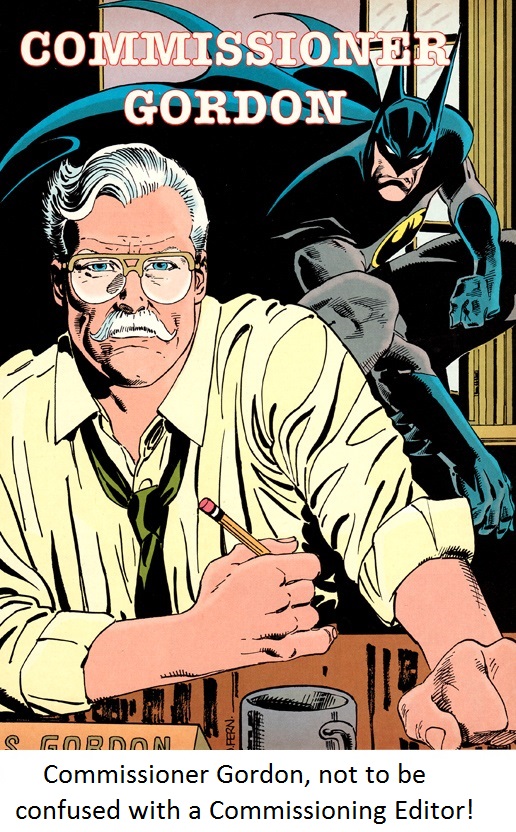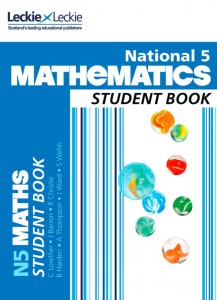The visiting speaker sessions for Semester 2 have already begun, with Peter Dennis, Editorial Manager at Leckie & Leckie giving a brilliant talk on commissioning, budgets and planning on February 5. The sessions will kick off again on March 5, with Jamie Crawford, Publishing Manager at RCAHMS (Royal Commission on the Ancient and Historical Monuments of Scotland). On March 12 we welcome Caroline Gorham, Production Director at Canongate Books, followed on March 19 by Fiona Brownlee, ex-Mainstream Publishing and current Publishing consultant at Freight Books. March 26 sees a welcome return for Vivian Marr, Head of Language Acquisition at Oxford University Press; and the final session is with Caitrin Armstrong and Claire Marchant-Collier, the Writer Development Team from Scottish Book Trust. All sessions are held on Thursdays in Pathfoot B2, beginning at 2pm. Please email frances.sessford@stir.ac.uk to register.
Visiting Speaker series, Semester 2, 2014-2015
February 11th, 2015 by Frances_Sessford | Posted in Blog | Comments Off on Visiting Speaker series, Semester 2, 2014-2015Gaelic Books Council Scholarship report – Liam Crouse
February 9th, 2015 by cs48@stir.ac.uk | Posted in Blog | Comments Off on Gaelic Books Council Scholarship report – Liam CrouseTags: Acair, digital publishing, Faber & Faber, Faber Digital, gaelic, gaelic books council, Gaelic publishing, Grace Note Publications, harper collins, MLitt Publishing Studies, prizes and awards, scholarships
Liam Crouse, the first recipient of the Gaelic Books Council Scholarship, reports on his award:
 My initial interest in Scottish Gaelic literature was fostered during my undergraduate degree in Celtic and Archaeology at the University of Edinburgh. Two forms of prose, the short story and the novel, were instrumental by both fostering my linguistic ability and cementing my interest in Gaelic-language literature. Following graduation, during my return home, my once fluent conversational skills began to ebb. However, by engaging with the modern literature, I was able to keep some semblance of fluency. It was during this period that I recognised the importance of literature to minority languages – not only in terms of cultural value, but also to foster usage and regeneration.
My initial interest in Scottish Gaelic literature was fostered during my undergraduate degree in Celtic and Archaeology at the University of Edinburgh. Two forms of prose, the short story and the novel, were instrumental by both fostering my linguistic ability and cementing my interest in Gaelic-language literature. Following graduation, during my return home, my once fluent conversational skills began to ebb. However, by engaging with the modern literature, I was able to keep some semblance of fluency. It was during this period that I recognised the importance of literature to minority languages – not only in terms of cultural value, but also to foster usage and regeneration.
Unlike the English-language publishing industry, in the Gaelic world we need more – more books, more authors, more publishers, more support. That was one of the reasons for creating the Gaelic Books Council scholarship. Initiatives within the past decade have focused on populating the literary corpus with quality works of prose. All the while continuing with those initiatives, new efforts are being exerted towards developing publishing capacity.
Through the course at the University of Stirling, I have gained an industry-oriented knowledge-base of the publishing industry, both in Britain and abroad. Courses in marketing strategies, business acumen, digital skills and publishing dynamics complemented each other in insightful and appealing ways. These skills were brought together in my publishing project – a geospacial app mapping out the life of the celebrated Gaelic poet Duncan Bàn MacIntyre along the West Highland Way, for which I was awarded the Faber & Faber prize for digital innovation. Towards the conclusion of the course, my thesis concerning the market for Gaelic books allowed me to investigate the multifaceted industry in a way which combined my zeal for the language with my interest in business and marketing practice.
Throughout the course, I gained first-hand experience working with publishers both big and small. The Gaelic Books Council arranged two internships at Gaelic-language publishers, one in Stornoway (Acair)and the other in Highland Perthshire (Grace Note Publications). While working with Grace Note, I helped in the translating of a children’s book which just recently was published in late November. I also secured an internship at the multinational publisher, HarperCollins, working on bilingual dictionaries. The contrast between large and small, multinational and local, and English and Gaelic made for interesting comparison.
I further became involved in Gaelic publishing in a more entrepreneurial spirit in December 2013, when news broke about the termination of Gaeldom’s sole magazine. A small group of enthusiasts and I rose to the challenge and established the first e-zine in the language called Dàna. The past year has been immensely enjoyable and enlightening, allowing me to directly apply many points from the degree. The e-zine is a tangible project with which I feel like I am helping to progress the language’s literature and we intend to continue developing the site’s outreach and influence in the coming years. It will certainly keep me busy!
The scholarship and degree have been both interesting and engaging. To those prospective publishing students: not only will it provide the keen librophile with a good balance of business sense, it will also equip you with the knowledge and connections that will allow you to thrive within the industry.
Note: Liam will shortly be taking up a post as Gaelic Development Office at Ceòlas Uibhist Ltd.
Visiting Speaker: Peter Dennis – Leckie & Leckie.
February 8th, 2015 by Heather Margaret McDaid | Posted in Blog | Comments Off on Visiting Speaker: Peter Dennis – Leckie & Leckie.Tags: education, leckie & leckie, peter dennis, publisher, publishing, session, visiting speaker

The first Visiting Speaker session of 2015 was Peter Dennis, Publishing Manager at Leckie & Leckie. The company has a goal to produce ‘high quality education resources for the secondary school market’, which includes textbooks and revision guides.
 Mere weeks into starting his job, the company was sold on to Granada Learning, the first of many to acquire the company who are now (happily!) part of HarperCollins. He began in a house in St. Andrews, working in ‘an attic next to a printer and a bearded gentlemen who quietly got on and made the books.’
Mere weeks into starting his job, the company was sold on to Granada Learning, the first of many to acquire the company who are now (happily!) part of HarperCollins. He began in a house in St. Andrews, working in ‘an attic next to a printer and a bearded gentlemen who quietly got on and made the books.’
Part of his job is drawing the budget, from the costs and sales projections to the pricing of the book itself. You need to look at the market and justify the need for the book, and look at the competition to hit the right price mark. Too high and no one will buy it, too low and you’ll lose your profit.
He also commissions the books, so needs to brief an author (or the team of authors) so they know exactly what’s expected. Standard templates and chapter features for ease of creation and continuity are key throughout.
The instigation of the company’s real growth came from winning the Scottish contract for past papers; there was a definite need to expand and working in a rural area can only go so far. Rural companies and publishers are not doomed to failure, he adds, but there can be a limiting factor in terms of growth.
The current SQA changes, moving to the Curriculum for Excellence, is the first overhaul of this kind in Scotland’s education sector for about 20 years, so it’s a big threat to the company as their entire list is technically gone, but also an opportunity spiralling from that need to create a new range of excellent products.
This is almost a good thing, as he notes that Leckie & Leckie was beginning to run dry with topics they could create books for. As there was no real change, the scope to expand into became narrower; they tried smaller subjects with smaller cohorts, topics like Graphic Communication and Home Economics, but there weren’t many places left to go.
 To create an authoritative text, you need to wait until the tinkering by the SQA is done. “People want to have something that they can open up and use,” he explains; they need to be patient at times in order to create a high quality, accurate product. Within that there are additional opportunities to spark interest and differentiate themselves using exercises, hints and tips, word banks, glossaries and so on.
To create an authoritative text, you need to wait until the tinkering by the SQA is done. “People want to have something that they can open up and use,” he explains; they need to be patient at times in order to create a high quality, accurate product. Within that there are additional opportunities to spark interest and differentiate themselves using exercises, hints and tips, word banks, glossaries and so on.
The process, editorially speaking, can be much the same as with trade as there is a back-and-forth needed to refine the initial manuscripts and get them to the required standard; this is aided by peer reviews, which also gives the author a sounding board during the writing process. Author input doesn’t stop there. They help with design aspects, making sure the diagrams and images used are correctly placed and accurate.
As for the future of publishing, he says, it’s digital. They’re looking to expand their content onto a digital, interactive, fee-based platform. Being part of a larger company mitigates the risk of embarking on this project, something which they likely could not afford to risk quite yet themselves. It is new, but with tightening school budgets, they would offer free samples and justify that the appetite for such a service is there from both sides.
In Scotland, we’re lucky to have a stable curriculum, where other countries in the United Kingdom have a more volatile and politically sensitive system. In that situation, it can be a boost to publishing, but can also prove difficult to plan ahead.
Throughout his time with Leckie & Leckie, he feels that the Scottish education system itself, being different to elsewhere in the UK, made them able to retain their brand identity despite being acquired by numerous companies, which is a nice thought to end an interesting talk!
The 2014 Eduwiki Conference
February 3rd, 2015 by Crystal Butungi Rutangye | Posted in Blog | Comments Off on The 2014 Eduwiki ConferenceTags: Eduwiki, Wikimedia Foundation, Wikimedian in Residence, Wikipedia
By Crystal B. Rutangye
 On Friday, 31st October, members of the MLitt Publishing Studies class attended the 2014 Eduwiki conference organised by Wikimedia UK. It took place in the St Leonard’s Hall at the University of Edinburgh.
On Friday, 31st October, members of the MLitt Publishing Studies class attended the 2014 Eduwiki conference organised by Wikimedia UK. It took place in the St Leonard’s Hall at the University of Edinburgh.
The Wikimedia Foundation (WMF) is a non-profit organisation registered in the USA, which believes in and supports the creation and free-sharing of knowledge. Thus, the WMF runs several projects and partners with organisations to this effect. Some of the commonest WMF projects include the Wikimedia Commons, Wikiquote, Wikisource, and the well-known world’s biggest encyclopaedia; Wikipedia. The projects and organisations are often organised under geographical chapters. Wikimedia UK is the United Kingdom’s chapter.
Eduwiki is an annual conference that focuses on Wikimedia’s education-based projects. This last Eduwiki conference at the University of Edinburgh was the third annual conference. It was a one-day event that majorly encompassed discussions on the possibilities of using Wikipedia as an educational tool in academic institutions, especially of higher learning.
 After welcome remarks by Toni Sant, the Wikimedia UK Education Organiser, the conference was opened by Peter McColl, the Rector of the University of Edinburgh. A keynote presentation was then given by Floor Koudijs, the Senior Manager of the Wikipedia Education Programme at the Wikimedia Foundation. He introduced a few of the education-based projects that are funded by Wikimedia, world-wide.
After welcome remarks by Toni Sant, the Wikimedia UK Education Organiser, the conference was opened by Peter McColl, the Rector of the University of Edinburgh. A keynote presentation was then given by Floor Koudijs, the Senior Manager of the Wikipedia Education Programme at the Wikimedia Foundation. He introduced a few of the education-based projects that are funded by Wikimedia, world-wide.
Koudij’s session was followed by presentations by three Wikimedians in residence across the education sector; Marc Haynes, Martin Poulter and Andy Mabett. A ‘Wikimedian in Residence’ is a placement in an institution taken up by a Wikimedia editor, who ‘facilitates a close working relationship between the WMF and the institution, and serves as an Ambassador for open knowledge within the host organisation’.
Marc shared his experiences with Welsh Wicipedia and Porth Esboniadur while he was in residence at Coleg Cymraeg in Wales.
Martin Poulter gave a talk on the benefits of Wikimedia comprehension exercises. He taught useful tools in Wikipedia that were new to many attendants, like the translations tool.
 Andy Mabett, Wikipedian in residence at ORCID and at the Royal Society of Chemistry, gave an enlightening talk on the use of ORCID in education. ORCID is a technology that provides a researcher with a permanent digital identifier, which distinguishes him/her from other researchers. The researcher integrates their identifier into all their online papers, submissions and other research workflows, making all their work and activities more easily recognisable. It also removes any confusion arising from distinguishing works of researchers who have similar names!
Andy Mabett, Wikipedian in residence at ORCID and at the Royal Society of Chemistry, gave an enlightening talk on the use of ORCID in education. ORCID is a technology that provides a researcher with a permanent digital identifier, which distinguishes him/her from other researchers. The researcher integrates their identifier into all their online papers, submissions and other research workflows, making all their work and activities more easily recognisable. It also removes any confusion arising from distinguishing works of researchers who have similar names!
After a hearty tea/coffee break, attendants settled down to the showcasing of two Wikimedia UK supported projects. First, Brian Kelly and Filip Maljkovic gave an overview of Wikimedia projects in the UK and in Serbia. Serbia had never had Wikimedia educational events till they partnered with Wikimedia UK. They had held cultural or religious events, but not educational ones. After Brian and Filip came Kate Dorney who is the Senior Curator of V&A Museum and a TaPRA Research Officer. TaPRA is the Theatre and Performance Research Association, one that ‘exists in order to facilitate research through and into theatre and performance’. The TaPRA-Wikimedia project involves encouraging researchers to post some of their work on Wikimania project websites and on Wikipedia. One challenge of this is the reluctance of researchers to participate in the project, citing insecurities over the fact that Wikepedia information is undated, and offers no protection through copyright. Nevertheless, with more workshops, training, publicity and more convincing, researchers have increasingly got on board. Regular reports on their collaboration with Wikimania will be provided, so that other projects can learn from them.
Greg Singh, a lecturer in Communications, Media and Culture from the University of Stirling, showcased his experiences using Wikipedia as a teaching tool. His students worked on a Wikibook project; the Digital Media and Culture Yearbook 2014, which can be found on the Wikibooks web-page. He set students in groups so that they could appreciate the experience of being part of a research community. Some key things students learnt during this project, apart from general research and academic writing skills, were global communications over different time zones (group members residing in different countries had to figure out the best hours to work with each other), editing confidence, and digital knowledge. They did have challenges too; some students ended up ‘trawling because the group work was subject to miscommunication and toxic disinhibition’ among others.
After Greg, Ally Crockford, a Wikimedian in residence at the National Library of Scotland, led a discussion on ‘Education Matters in Scotland.’ She quoted a few statistics on the state of education and literacy in Scotland, and then opened the floor to the audience for reactions and possible solutions. Some facts she cited are ‘Scotland is the most highly educated nation in Europe, yet a quarter of Scotland’s population still struggles with illiteracy in their daily life,’ and ‘one in eight people in Scotland have never used the internet.’
Reactions to her presentation led the discussion back to a theme that had quite been running through every session the whole day; ‘Can academic institutions accept Wikipedia as a certifiable reference source?’ Ally alluded to Martin’s session earlier to suggest that Wikipedia can begin to be used in class rooms as early as in primary school, to help reduce illiteracy levels and poor internet skills. However, no solution was given to the challenge that Wikipedia, being an open resource, can be edited by anyone, making the credibility of its information questionable and unreliable for research. It was concluded that Wikipedia is a great starting point in one’s research or general quest for knowledge, but it cannot yet be cited in academic papers.
At this point, the conference broke off for a lunch break after which interested participants broke up into three sessions; one for new campus ambassadors and educators, another with an intermediate session for campus ambassadors and educators, and a third for students under 18, on Wikipedia projects in schools. A storify of tweets shared throughout the day was compiled by Brian Kelly, and can be followed here.